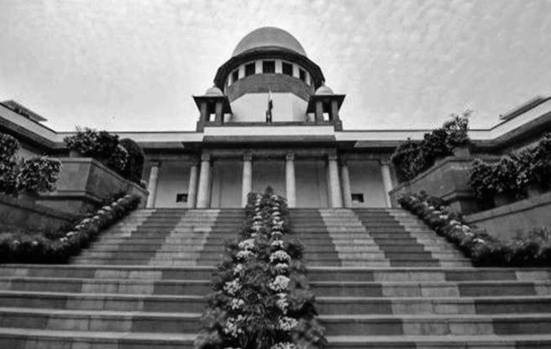Amitha Muraleedharan
The Supreme Court has upheld the conviction of a husband for murdering his wife.
The top court observed that the husband had failed to explain the murder which took within the privacy of a house.
The appeal was dismissed by the division bench of Justices Sanjay Kishan Kaul and Hrishikesh Roy and asserted the judgment of Madhya Pradesh High Court.
While observing the case, the court stated that “the accused is under an obligation to give a plausible explanation regarding the cause of the death in the statement recorded under Section 313 of the Cr.P.C. and mere denial could not be the answer in such a situation.”
The death of one Sahodara Bai came into notice when she was found dead on a cot in her matrimonial home in 1999.
The doctor in charge of the post mortem opined that it was homicidal, and the death happened due to asphyxiation caused by strangulation.
The trial court had convicted the husband, father-in-law, and mother–in–law for the murder. The evidence was against the accused.
The court heavily relied on the evidence of the brother of the deceased and the case was based on circumstantial evidence.
The High Court justified the conviction of the husband but acquitted the mother-in-law. The father–in–law died during the trial of the case.
The High Court of Madhya Pradesh had referred the Section 106 of the Indian Evidence Act, 1872, which states that the burden of proof within the special knowledge of a person is upon him.
The court also contended that the incident which occurs in the privacy of the house is difficult for the prosecution to lead direct evidence for the guilt of the accused so the person who is residing in the house should explain.
The court concluded that they cannot get away with mere silence.
The Supreme Court had justified the High Court’s order and dismissed the petition.

